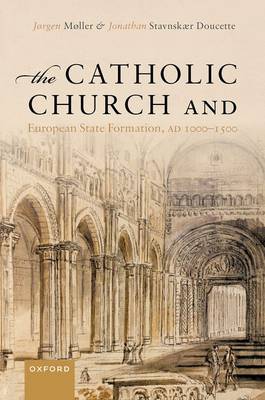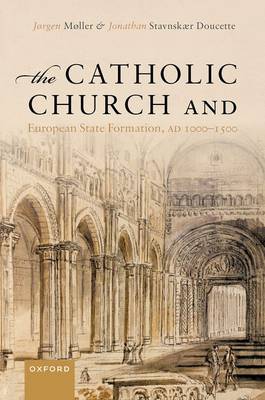
- Retrait gratuit dans votre magasin Club
- 7.000.000 titres dans notre catalogue
- Payer en toute sécurité
- Toujours un magasin près de chez vous
- Retrait gratuit dans votre magasin Club
- 7.000.0000 titres dans notre catalogue
- Payer en toute sécurité
- Toujours un magasin près de chez vous
The Catholic Church and European State Formation, AD 1000-1500
Jørgen Møller, Jonathan Stavnskær Doucette
Livre relié | Anglais
156,45 €
+ 312 points
Description
Generations of social scientists and historians have argued that the escape from empire and consequent fragmentation of power - across and within polities - was a necessary condition for the European development of the modern territorial state, modern representative democracy, and modern levels of prosperity. The Catholic Church and European State Formation, AD 1000-1500 inserts the Catholic Church as the main engine of this persistent international and domestic power pluralism, which has moulded European state-formation for almost a millennium. The 'crisis of church and state' that began in the second half of the eleventh century is argued here as having fundamentally reshaped European patterns of state formation and regime change. It did so by doing away with the norm in historical societies - sacral monarchy - and by consolidating the two great balancing acts European state builders have been engaged in since the eleventh century: against strong social groups and against each other. The book traces the roots of this crisis to a large-scale breakdown of public authority in the Latin West, which began in the ninth century, and which at one and the same time incentivised and permitted a religious reform movement to radically transform the Catholic Church in the period from the late tenth century onwards. Drawing on a unique dataset of towns, parliaments, and ecclesiastical institutions such as bishoprics and monasteries, the book documents how this church reform movement was crucial for the development and spread of self-government (the internal balancing act) and the weakening of the Holy Roman Empire (the external balancing act) in the period AD 1000-1500.
Spécifications
Parties prenantes
- Auteur(s) :
- Editeur:
Contenu
- Nombre de pages :
- 238
- Langue:
- Anglais
Caractéristiques
- EAN:
- 9780192857118
- Date de parution :
- 08-10-22
- Format:
- Livre relié
- Format numérique:
- Genaaid
- Dimensions :
- 163 mm x 240 mm
- Poids :
- 517 g

Les avis
Nous publions uniquement les avis qui respectent les conditions requises. Consultez nos conditions pour les avis.






